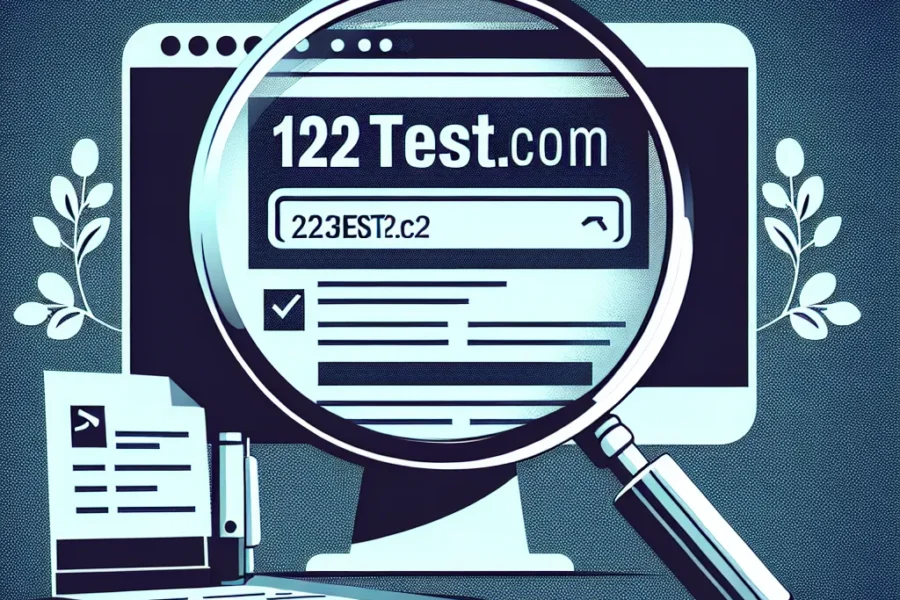Is Hechingerreport.org Accurate: A Critical Analysis of This Online IQ Test
In the digital age, the internet is replete with numerous online IQ tests claiming to measure your intelligence. One such site is Hechingerreport.org, which offers an IQ test that many turn to for a quick assessment of their cognitive abilities. However, how accurate is this test, and can it genuinely measure intelligence on par with professional, proctored exams? If you are looking for legitimate IQ Tests which pass the entry bar for Mensa, see our [IQ Tests](https://cognitivetesting.co). This article dives deep into the methodology, reliability, and criticisms surrounding the Hechingerreport.org IQ test, raising questions about its efficacy and accuracy.
**Unveiling the g-Factor Study: Where Is It?**
One of the primary components of a credible IQ test is the presence of a g-factor study. The g-factor, or general intelligence factor, is a construct used to describe the common skill set that contributes to performance across diverse cognitive tasks. A well-validated IQ test typically publicizes a g-factor study to authenticate its claim to measure general intelligence effectively. Unfortunately, Hechingerreport.org doesn’t make this critical study easy to find, or it might not even exist. Without transparent access to such fundamental research, it’s tough to gauge the scientific grounding of their IQ assessment.
A g-factor study not only enhances the legitimacy of an IQ test but also increases its acceptance within the scientific community. Tests like those designed by psychologists such as Spearman or Cattell often undergo rigorous peer review and publication, which serve as external validations of their methodologies. The lack of such evidence for the Hechingerreport.org IQ test brings into question the robustness of its underlying cognitive models.
**Norming Data: The Invisible Benchmark**
Norming data is essential for any psychological test to be credible. Norming involves standardizing test scores using a large, representative sample, allowing individual scores to be meaningfully interpreted in the context of a broader population. Essentially, norming data serves as the yardstick against which all test results are measured. However, Hechingerreport.org fails to furnish easily accessible norming data, leaving potential test-takers in the dark about how their scores compare with established norms.
Without norming data, the IQ scores provided by Hechingerreport.org are akin to marks on an arbitrary scale, devoid of any context or meaning. Users have no way of knowing whether their test results place them in the top 1% or the bottom quartile of the population. This absence of foundational benchmarks weakens the test’s reliability and makes its results highly questionable.
**Credibility and Negative Reviews: Scathing Criticism on Various Platforms**
When evaluating any online service or product, user reviews can offer valuable insights into its effectiveness and credibility. Unfortunately for Hechingerreport.org, the feedback isn’t overwhelmingly positive. Numerous reviews across various platforms highlight glaring issues such as inconsistent scoring, ambiguous questions, and even technical glitches.
Platforms like Reddit, Trustpilot, and various psychology forums feature numerous critical anecdotes from dissatisfied users. For instance, one common complaint is that the questions are either too simplistic or overly abstract, failing to capture the nuanced aspects of intelligence that a comprehensive IQ test should measure. Another frequent gripe is the lack of customer support for technical issues, leaving users stranded without guidance.
These recurring negative reviews underscore the perception that Hechingerreport.org may not live up to the rigorous standards of professional, proctored IQ tests administered in controlled environments by licensed psychologists. This sentiment is further exacerbated by the absence of transparent methodology, norming data, and g-factor studies.
**Comparisons with Proctored IQ Tests: A World Apart**
For those serious about understanding their cognitive abilities, the discrepancies between online IQ tests and traditionally proctored exams can’t be overstated. Professional IQ tests like the Wechsler Adult Intelligence Scale (WAIS) or Stanford-Binet test involve intricate methodologies, years of research, and multiple iterations of norming and reliability studies. These tests are generally administered in controlled environments by experienced psychologists trained in test administration, interpretation, and feedback.
In stark contrast, many online IQ tests, including the one offered by Hechingerreport.org, often feature a one-size-fits-all approach to measuring intelligence. They are designed to be completed quickly, usually in less than an hour, and lack the intensive, individualized touch that characterizes proctored exams. Because these tests aren’t administered in controlled conditions, they can’t account for extraneous variables like distractions, mental fatigue, or even cheating, all of which can significantly distort results.
Moreover, professional IQ tests are backed by substantial psychometric literature validating their reliability and validity. These exams are extensively researched, ensuring they measure what they purport to measure consistently over time. Conversely, the Hechingerreport.org IQ test lacks the transparent psychometric evidence needed to establish its scientific credibility.
**User Experience: The User Interface and Experience Falls Short**
User experience is another area where Hechingerreport.org’s IQ test falters. While a sleek, intuitive interface might seem superficial when discussing something as significant as an IQ test, it plays a critical role in maintaining user engagement and ensuring accurate measurements. Unfortunately, many users have reported outdated or clunky interfaces that detract from the overall experience.
For example, users have complained about the test’s layout being confusing, resulting in misinterpreting questions or mechanical errors—such as accidentally skipping questions or selecting wrong answers. This detracts from the test’s validity, as the scores may not genuinely reflect the individual’s cognitive abilities but rather their ability to navigate a poorly designed website.
**Lack of Post-Test Analysis: A Missed Opportunity for Insightful Feedback**
One of the most glaring omissions in Hechingerreport.org’s IQ test is the lack of detailed post-test analysis. A reliable IQ test should offer thorough feedback that delves into various cognitive domains such as logical reasoning, verbal skills, and spatial awareness. This sort of detailed feedback helps individuals understand their strengths and areas for improvement, making the IQ test a more valuable and instructive tool.
Regrettably, Hechingerreport.org seems to focus merely on providing a numerical score with little to no additional analysis or explanation, leaving users with a superficial understanding of their cognitive abilities. This lack of depth not only limits the test’s utility but also diminishes its educational value, making it a far cry from the comprehensive assessments offered by proctored IQ tests.
**Conclusion: Proceed with Caution**
Given the various shortcomings highlighted—from the absence of critical g-factor studies and norming data to negative reviews and lackluster user experience—Hechingerreport.org’s IQ test falls short of being a credible measure of intelligence. While it may serve as a casual diversion for those curious to gauge their cognitive skills, it possesses several inherent flaws that make it unreliable for any serious assessment.
For those genuinely interested in understanding their cognitive abilities, it is imperative to turn to well-established, proctored IQ tests administered by qualified professionals. These tests offer validated methodologies, comprehensive feedback, and accurate results that significantly outperform any online alternatives, including Hechingerreport.org.
In summary, Hechingerreport.org’s IQ test appears to be one more in the long line of online assessments that promise much but deliver little in terms of genuine, scientifically validated insights. Until the site can substantiate its claims with transparent research, norming data, and meaningful user feedback, it will remain an unreliable gauge of one’s intellectual capacity. If you are looking for legitimate IQ Tests which pass the entry bar for Mensa, see our [IQ Tests](https://cognitivetesting.co).



Leave a Comment